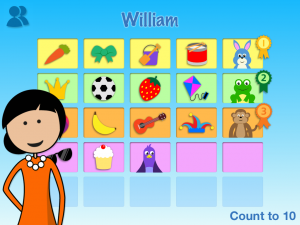Why Fluent English Language is Important for Business
Today we have a post by guest blogger Jeff Peters on the importance of the English language in the business world.
Globalization is a dominant feature of post-modern industrial and developing societies and is being led by multi-national corporations. Whether it is high tech companies such as Apple, automobile manufacturers like General Motors, or even much smaller firms that specialize in one-off items manufactured throughout the Far and Near East, business has managed to overcome trade and regulatory boundaries in order to sell wares through free markets. Communication is paramount; imagine the difficulties if no efforts were made to establish a cohesive way by which businesses communicated. This is perhaps the over-riding reason as to why English has been chosen to be the de facto language of the business world.
Why English?
 We may have Hollywood to thank for the predominance of the English language throughout much of the world today. Distribution of American movies, television programs and music has allowed many peoples, even in so-called third world nations, to at least become somewhat familiar with spoken English. A large percentage of multinational corporations originated in the United States and continue to be headquartered in this country and their influence throughout the global community is quite predominant. Perhaps most important of all is the emergence of the Internet, where the English language predominates and is evidenced by the fact that many foreign language websites provide the means for translation into English.
We may have Hollywood to thank for the predominance of the English language throughout much of the world today. Distribution of American movies, television programs and music has allowed many peoples, even in so-called third world nations, to at least become somewhat familiar with spoken English. A large percentage of multinational corporations originated in the United States and continue to be headquartered in this country and their influence throughout the global community is quite predominant. Perhaps most important of all is the emergence of the Internet, where the English language predominates and is evidenced by the fact that many foreign language websites provide the means for translation into English.
English as the Model of Efficiency
While English may not be easy to learn, it has been adopted by foreign companies as the most effective means of gaining access to global commerce and trade. This is reflected in the fact that worldwide, close to two billion people are currently learning English. According to language experts at SolidEssay.com, which is a college paper writing service, having effective English language skills will not only allow for access to commerce and trade, it also provides an efficient way by which business is conducted. Cultural differences aside, the predominance of English has allowed for an efficient means to conduct business throughout the world, and has also provided an effective tool used to deal with political differences, also viewed as barriers to trade.
Why is this Important to Individuals?
With the rise of English as the language of choice throughout the global business community it is important for non-English speakers to understand that without the necessary language skills they run the risk of being left behind. Each must adapt their skills to business needs and to be a cog in this dynamic world it is important to learn the lingo. Hence, learning English is primary to individual success and should be given to anyone wishing to gain access to the corporate world of today. As the spread of English continues, learning the language appears to be one of the most productive means to meet the demands of a rapidly changing world.
Jeff provides essay writing tips through SolidEssay.com. One of his recent publications is on how to write a rhetorical analysis essay.
Remember with Talk Business, you can learn English from over 70 other languages.
Rising Demand for English as a Foreign Language Reveals Spain’s Biggest Educational Bugbears
Today we welcome back guest blogger Eve Pearce, with an interesting article about the demand for language learning in Spain, and its implications for the future.
It is rather ironic that while numbers of Brits studying a foreign language to A-level have dropped dramatically over the past few years, nearby Spain – officially out of one of the deepest recessions in its history but still struggling in terms of its high rate of unemployment – is undergoing a veritable boom in foreign language study, with the English language taking pole position, since some 78 per cent of all job offers demand this language from successful candidates.
 The Spanish crisis, which has rocked the nation since its commencement in 2008, has also led to a greater demand for German and French language learning, since many Spaniards are considering migrating to these countries given the bleak economic forecast. In many private nurseries and schools, the study of Chinese is all the rage as well, since parents see this language as the difference that could make or break their child’s job application in the future. This level of competition is only logical, since the forecasted unemployment rate for 2014 stands at 26.4 per cent of the population. Vice-President of the European Commission and commissioner of Economic and Monetary Affairs, Olli Rehn, recently declared that although the unemployment rate in Spain has stabilised, it continues to be “unacceptably elevated”. The situation, he claimed, was similarly bleak in Italy.
The Spanish crisis, which has rocked the nation since its commencement in 2008, has also led to a greater demand for German and French language learning, since many Spaniards are considering migrating to these countries given the bleak economic forecast. In many private nurseries and schools, the study of Chinese is all the rage as well, since parents see this language as the difference that could make or break their child’s job application in the future. This level of competition is only logical, since the forecasted unemployment rate for 2014 stands at 26.4 per cent of the population. Vice-President of the European Commission and commissioner of Economic and Monetary Affairs, Olli Rehn, recently declared that although the unemployment rate in Spain has stabilised, it continues to be “unacceptably elevated”. The situation, he claimed, was similarly bleak in Italy.
Interestingly, despite the general consensus as to the value of learning foreign languages, the Mayor of Madrid, Ana Botella’s recent address to the Olympic Committee during Madrid’s bid to host the 2020 Olympics was deemed by many to be representative of the current failure of the public educational system to meet the demand for spoken English at an acceptable and truly functional level. In many ways, this is owing to the small number of hours dedicated to English in the public system curriculum, as well as the heavy focus on textbook-style teaching (which leans heavily on grammatical exercises) rather than on fluency and bilingualism/multi-lingualism. As a result, while most students are able to successfully complete intermediate-level exercises (involving the use of the simple past tense and conditionals, for instance), they are far less comfortable when asked to speak in public or to conduct business by phone. Meanwhile, those who are able to afford it are relying more on private classes with tutors, who are able to offer students conversational practise, one of the most sorely lacking activities in many schools and academies. Many adults (who are also flocking to EFL academies or completing online courses) frequently lament not having adequately learned English at the optimal point of their lives (i.e. in their early childhood) and now, more than ever, dreams of moving to greener pastures are being put on the back burner owing to this glaring failure in the system.
What, then, is the solution for this crisis-struck nation, at least in so far as language learning is concerned? There are a number of measures educators and those governing alike need to adopt, some of which may be:
An increase in the hours dedicated to English
If students are to gain the confidence they need to speak fluently in a variety of both social and professional settings, schools should consider not only elevating the number of hours dedicated to learning English, but also, perhaps, taking a leaf out of the book of many costly British and bilingual (Spanish-English) schools, where core subjects such as mathematics and science, are also taught in English. It is of great utility for students to be confident when counting in English and to learn to solve practical problems they can encounter in daily life in a second language (e.g. dividing into fractions, comparing items by weight, adding and subtracting, etc).
Learning other subjects in English also wrests from the necessity of contracting separate ‘conversation’ classes, since students grow accustomed to expressing their thoughts in English in a more effortless manner. During his time in office, ex-Spanish President, José Luis Rodríguez Zapatero acknowledged that the flawed system of education in English was an “evident problem“, and vowed to implement new strategies into his government’s education plan. In Madrid, one in every three public schools offer between 30 and 50 per cent of their classes in English or another foreign language. The aim is to raise this figure to one in every three schools by 2015. Interestingly, neither Zapatero nor current President, Mariano Rajoy, speak English.
Government-funded EFL classes for mature-aged students
Greater access to classes run by fully qualified EFL teachers will not only help unemployed adults hone their language skills, they will also promote spoken English within the home setting, which is bound to benefit children in both a direct and an indirect manner.
The provision and adoption of useful materials in class
As spoken and listening skills are the biggest stumbling blocks for most students, the encouragement of learning through audio-visual material (films, songs etc.) should be encouraged, to increase levels of comprehension.
Specialised teacher training
Although the number of bilingual schools has increased in recent years, the number of truly bilingual teachers is currently insufficient to meet the demand. Therefore, an investment should be made in encouraging teachers to complete courses in English-speaking countries, which ensures that they will obtain the sufficient level of fluency required to elicit the same from their students.
The solution to the Spanish crisis may lie in the distant future, yet there seems little reason to wait so long for the adoption of new methodologies when it comes to learning foreign languages at school. Recent budget cuts to the Department of Education, however, have seen the country take a turn for the worse in so far as public schools teachers’ salaries and University costs are concerned, leading us to wonder if the government is willing to back the admitted need for improved language learning, with the necessary funding. Investment in education is always wise, but it is no less than crucial in times of crisis.
Eve Pearce
EuroTalk: a look back at 2013
It’s been another busy year at EuroTalk, with new products, new languages… and a new puppy. Throw in a royal encounter and a cake that looks like a Dalek, and you’ve got the makings of an interesting twelve months.
Languages
In June, we launched our new app for iPhone and iPod touch, uTalk. This had been in development for a long time, and we were really proud and excited to be able to share it with the world. It’s got more content and more activities, and it’s free to download and start learning the essential words you need to get by in 60 languages. We’ve been adding more languages regularly since the app was launched, and will continue to do so over the coming months. So if we haven’t yet got the language you need, don’t worry – we soon will.
And that’s not all. Last month, we added Lao, the official language of Laos and also spoken in the north east of Thailand, to our range with the release of Talk Now, our beginner program for PC and Mac. Lao has about 15 million speakers worldwide, and is a language we’ve been wanting to offer for some time now. There are more new languages on the way in 2014, so watch this space…
Maths
This year also saw the launch of part 2 of our second maths app, Maths, age 4-6, and two new practice apps – Count to 10 and Count to 20. We also released a version of Maths age 3-5, for schools, so teachers can use the app in the classroom.
Malawi
We’ve been working in Malawi now for several years, as part of our mission to ensure one billion primary age children reach their full potential in numeracy, reading and English. This year, Dr Nicola Pitchford from the University of Nottingham conducted an evaluation at Biwi Primary School in Malawi, to measure how effective our maths apps are for the children’s learning, compared to other teaching methods, including other apps. The preliminary results show that not only did the group using our apps perform significantly better than the other groups, but in fact they tripled their maths knowledge in just eight weeks. This is really exciting and encouraging, and we hope now to scale up the project in Malawi to reach more children, in more schools.
Junior Language Challenge
2013 saw the return of the JLC, after a year off in 2012. Our annual language learning competition for primary age children across the UK is always very popular, and this year was no exception. We were joined at the final by Martha Payne of NeverSeconds, who at just 10 years old, has raised over £140,000 for Mary’s Meals, a charity providing school dinners to children in Malawi. Martha, with her dad and her sister, was our special guest and handed out the prizes to our finalists, including the JLC Champion for 2013, Ella Whittingham from West Bridgford, Nottingham.

Martha Payne with JLC Champion Ella Whittingham, runners-up Morgan Fry and Tudor Mendel-Idowu, and EuroTalk Chairman Richard Howeson
A Royal Visit
In October, Steve was honoured by a visit from Her Royal Highness Princess Maha Chakri Sirindhorn of Thailand, while at an exhibition in Bangkok. The Princess came to have a look at the EuroTalk stand, and later Steve presented her with a gift on behalf of the company. He had to be instructed on the correct way to bow, and fortunately he got it right!
New arrivals
This year, we’ve said a sad goodbye to Glyn, Tom and Hanna, but welcomed Safia, Seb and Pablo. We’ve also been lucky to have Lorena with us from Germany for a few months; you may have enjoyed some of her blog posts! And in August we welcomed Molly the puppy, who caused a certain amount of mayhem, but was very easily forgiven because she’s so cute.
Fancy dress fun
We entered into the ‘spirit’ of Halloween by getting dressed up for the occasion. With everything from vampires to skeletons, pumpkins to werewolves, we were quite a sight to behold. Although some of us were scarier than others…
Lots of cake
We’ve always enjoyed a bit of cake here at EuroTalk, but this year we’ve been thoroughly spoilt, with keen bakers Safia and Alex (but mostly Safia) providing us with masterpieces like this amazing Dalek cake. (It took us three days to eat, but it was totally worth it.)
And so the year has come to an end in style. Thanks as always for reading our blog, and to our guest bloggers who’ve been in touch over the last year. Please do contact us if you have something you’d like to share!
Happy New Year, everyone – see you in 2014!
Languages for the future: the top ten
A recent report by the British Council has laid out the ten most important languages for the UK’s future, in political, economic, educational and cultural terms.
According to the report, the ten most important languages, in order, are: Spanish, Arabic, French, Mandarin, German, Portuguese, Italian, Russian, Turkish and Japanese. I read this list with a certain amount of smugness that I speak Spanish, German and French – although my knowledge of key languages such as Mandarin and Arabic is, sadly, next to nothing. So feel free to give yourself a pat on the back if you can speak, or are learning, one of those ten languages.
 Unfortunately, the report also indicated that the numbers of UK residents actually learning these languages, especially the ones not taught in schools, are very low. On a positive note, around 15% of people can hold a conversation in French. However, only 6% are able to do so in German, 4% in Spanish and 2% in Italian. But the figures for the other languages are as low as 1%.
Unfortunately, the report also indicated that the numbers of UK residents actually learning these languages, especially the ones not taught in schools, are very low. On a positive note, around 15% of people can hold a conversation in French. However, only 6% are able to do so in German, 4% in Spanish and 2% in Italian. But the figures for the other languages are as low as 1%.
Perhaps one of the problems is that Mandarin, Japanese, Russian and Arabic all require learners to pick up another script. This might seem daunting, but is actually really exciting. Just being able to read simple words in another script gives you a huge sense of achievement, and you’d be surprised how quickly you can begin to decipher words from what previously looked like squiggles.
Hopefully if you’re reading our blog you already know the importance of language-learning, and that picking up a new language is an adventure rather than a chore! But maybe this list will give you an idea about which language you fancy picking up – maybe it’s time to start reviving your A-level French? Or be brave and give Arabic a try? Personally, I’m working on adding Italian to my list, which is proving interesting as I lapse back into Spanish as soon as I don’t know a word!
The report recommends a much greater focus on languages in schools and that businesses should invest in language training for languages that are useful in their industry. But don’t worry if your school days are behind you – it’s never too late to learn a new language!
Alex
Toddler Talk: How to Encourage Your Little One to Learn Language
Today’s post was written by guest blogger, Eve Pearce.
For most parents, a child’s first word is a huge milestone – the first step in learning communication, language and the beginning of a whole lot of chattering. After the initial ‘mamas’ and ‘dadas,’ a string of other words usually start to flow but this isn’t always the case. Up to 6 million children in the United States suffer from some sort of speech or language disorder which can affect their ability to talk. Others may not have a disorder but simply take longer to develop their speech and language skills. Despite experts suggesting that toddlers will be at least three years old before being able to form short sentences, there are things that you can start doing much earlier on to encourage your child to talk. Here are some tips to help encourage your little one to learn language and what to do if your child won’t talk.
What if my child won’t talk?
 It’s important to remember that children develop at different rates so comparing them to their peers isn’t always helpful. Sometimes there are simple reasons why a child doesn’t speak much. For example younger siblings can sometimes be quieter because they allow their older siblings to talk for them. Other times children may develop in physical areas such as crawling, walking and climbing more quickly and this detracts attention away from their interest in talking. But if you feel that your child has reached an age where they should be speaking more than they are of if you are generally concerned about a lack of response to your attempts to interact with them it could be worth seeking advice from a paediatrician or speech therapist. Unfortunately developmental delays in children do exist and conditions such as Apraxia, Dysfluency and ADHD are relatively common and all affect speech and language skills. Getting these diagnosed will help you get the professional advice you need in order to help your child move forward with their language.
It’s important to remember that children develop at different rates so comparing them to their peers isn’t always helpful. Sometimes there are simple reasons why a child doesn’t speak much. For example younger siblings can sometimes be quieter because they allow their older siblings to talk for them. Other times children may develop in physical areas such as crawling, walking and climbing more quickly and this detracts attention away from their interest in talking. But if you feel that your child has reached an age where they should be speaking more than they are of if you are generally concerned about a lack of response to your attempts to interact with them it could be worth seeking advice from a paediatrician or speech therapist. Unfortunately developmental delays in children do exist and conditions such as Apraxia, Dysfluency and ADHD are relatively common and all affect speech and language skills. Getting these diagnosed will help you get the professional advice you need in order to help your child move forward with their language.
Verbalize their feelings
Children communicate with their parents from day one through crying. Over time parents come to recognize the different types of cries and what they mean. As your child develops they will begin communicating in other ways – smiling, gurgling, throwing tantrums and whining. These are some of the more obvious signs but even facial expressions can give away what they are thinking or feeling. If you can verbalize their expressions then they will begin to associate these words with how they are feeling and know what they mean even before they are able to say them out loud. For example if she is smiling at her dolly you say ‘you look very happy today’ or if he is becoming frustrated with something ask him ‘why are you cross?’
It sounds silly but sometimes parents simply forget to talk to their babies. Many wrongly assume that a small baby is incapable of communication and talking is therefore pointless; but actually a baby becomes attuned to their mother’s voice while they are in the womb and talking to them will reassure them, comfort them and interest them even if they can’t understand what you are saying. Alter the pitch of your voice and sing songs. This will grasp their attention. They cannot respond in words yet but you will see from their smiles, gurgles and squirming that they are enjoying the interaction.
Read, read, read
 Introduce books as early as possible. Your baby will probably not start to engage with them fully until six months onwards but reading helps them to associate pictures with words, follow stories and pick up on your expression and emotion as you read. It will help them to not only learn the words but recognize the things in the world around them and develop their listening skills too. Introducing sensory books with fabrics, noises and shapes is also a great way to grasp their attention and increase their interest in books. Similarly, do not feel you have to be totally led by the book at all times. Let the child explore the book at their own pace rather than forcing them to sit still and listen while you finish it conventionally. Developing an interest and love for books means developing an interest and love for language so you need to make it fun to hold their enthusiasm.
Introduce books as early as possible. Your baby will probably not start to engage with them fully until six months onwards but reading helps them to associate pictures with words, follow stories and pick up on your expression and emotion as you read. It will help them to not only learn the words but recognize the things in the world around them and develop their listening skills too. Introducing sensory books with fabrics, noises and shapes is also a great way to grasp their attention and increase their interest in books. Similarly, do not feel you have to be totally led by the book at all times. Let the child explore the book at their own pace rather than forcing them to sit still and listen while you finish it conventionally. Developing an interest and love for books means developing an interest and love for language so you need to make it fun to hold their enthusiasm.
Talk properly
The reason many people talk to their children in ‘baby speak’ is simple – words such as ‘choo choo’ and ‘woof woof’ are more pleasing for a child’s ears and easier for them to say. As young babies it is ok to use this sort of language but as they grow up it means teaching them that actually a ‘choo choo’ is a train and a ‘woof woof’ is a dog, which is double the amount of learning for them. Some child experts believe that talking authentically from the beginning is the best way to help a child develop language skills. They will notice the difference in your tone and language when you speak to other people and wonder why they are being spoken to differently. There is no need to speak to your toddler in a pitch that ten decibels higher than your normal voice just in everyday conversation – this is not natural and yet you want them to learn and mimic natural behaviour and speaking. This doesn’t mean speaking to them in the same way you would speak to an adult; obviously you need to use simpler words and talk a little slower so that they can pick up on everything you say, but do not patronize them.
If anyone has any other helpful tips, please feel free to share them in the comments below.
We’ve heard from parents that our Vocabulary Builder program for 4-12 year olds has been helpful to them in encouraging their children to talk. Even if it’s their own native language, the colourful characters and games are a fun way to build up their confidence. Vocabulary Builder is available in over 100 languages.







